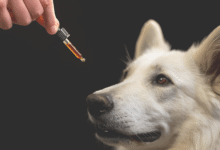
Pet Dental Care: How to Keep Your Pet’s Teeth Healthy
Pet dental care is a crucial aspect of keeping your furry friend healthy and happy. Just like humans, pets need regular dental hygiene
Pet dental care is a crucial aspect of keeping your furry friend healthy and happy. Just like humans, pets need regular dental hygiene to prevent common dental diseases that can lead to severe health issues if left untreated. Many pet owners overlook the importance of oral health, but poor dental hygiene can lead to infections, pain, and even problems with the heart, liver, and kidneys. Ensuring your pet has a proper dental care routine can significantly improve their quality of life and longevity.
The importance of pet dental care cannot be overstated, as dental disease is one of the most common health issues among pets. A lack of proper oral hygiene can result in plaque and tartar buildup, gum disease, and even tooth loss. Additionally, bacteria from an infected mouth can enter the bloodstream, leading to systemic health problems. By prioritizing your pet’s dental care, you can help them maintain fresh breath, strong teeth, and overall good health.
Understanding Pet Dental Health
Pets can suffer from various dental problems, including plaque and tartar buildup, gingivitis, periodontal disease, and even tooth decay. The first sign of trouble is often bad breath, which many pet owners mistakenly think is normal. If left untreated, dental problems can progress, leading to pain, infections, and loss of appetite. Other signs of dental disease include excessive drooling, difficulty chewing, swollen gums, and pawing at the mouth. A comprehensive dental care routine can prevent these problems and keep your pet comfortable and pain-free.
The Importance of Regular Dental Checkups
Regular dental checkups help detect issues before they become severe. Vets typically recommend an annual dental exam, but some pets may need more frequent visits depending on their breed, age, and existing dental condition. During a checkup, your vet will examine the teeth, gums, and overall oral health to identify any concerns. If needed, they may recommend professional cleaning to remove tartar buildup and prevent infection. Early detection of dental issues can save your pet from pain and expensive treatments in the future.
Preventing Tooth Decay and Gum Disease
One of the primary benefits of regular dental visits is the prevention of tooth decay and gum disease. Plaque and tartar buildup can lead to cavities and periodontal disease if left untreated. During a dental checkup, a professional cleaning removes these harmful substances, reducing the risk of future complications.
Early Detection of Dental Issues
Routine dental exams allow dentists to identify potential problems, such as cavities, infections, or misalignment, before they worsen. Early intervention can prevent more extensive and costly treatments, such as root canals or extractions, down the line.
Oral Cancer Screening
Oral cancer is a serious condition that can be life-threatening if not detected early. Dentists perform oral cancer screenings during checkups, looking for abnormalities in the mouth, tongue, and throat. Early detection significantly improves treatment success rates.
Maintaining Fresh Breath and a Confident Smile
Bad breath, or halitosis, is often caused by plaque buildup, gum disease, or food particles trapped in hard-to-reach areas. Regular cleanings help keep breath fresh and teeth looking bright, boosting confidence in personal and professional interactions.
Overall Health Benefits
Oral health is closely linked to overall health. Poor dental hygiene has been associated with conditions such as heart disease, diabetes, and respiratory infections. Regular dental visits help maintain a healthy mouth, reducing the risk of these systemic issues.
How Often Should You Visit the Dentist?
Most dentists recommend a checkup every six months, though some individuals with specific conditions may need more frequent visits. Your dentist can provide personalized advice based on your oral health needs.
Brushing Your Pet’s Teeth
Brushing your pet’s teeth is the best way to prevent plaque and tartar buildup. However, many pet owners struggle with this task. The key is to start early and make it a positive experience. Use a pet-specific toothbrush and enzymatic toothpaste. Never use human toothpaste, as it contains harmful ingredients like fluoride and xylitol, which can be toxic to pets.
Start by introducing the toothpaste to your pet and letting them sniff and taste it. Gradually get them accustomed to having their mouth touched by lifting their lips and gently rubbing their gums with your finger. Once they are comfortable, use a soft-bristled toothbrush to clean their teeth in small circular motions, focusing on the gum line. Pay attention to the outer surfaces of their teeth, as pets naturally clean the inner surfaces with their tongue. Keep brushing sessions short and rewarding, gradually increasing the time as your pet gets used to it.
Professional Dental Cleaning for Pets
Even with regular brushing, professional dental cleanings are necessary to maintain optimal oral health. Vets use special tools to remove tartar and plaque that brushing alone can’t eliminate. Most pets need professional cleaning once a year, but some may require more frequent cleanings based on their dental health. During this procedure, pets are placed under anesthesia to ensure thorough cleaning and prevent discomfort. The vet will also check for hidden dental issues, such as infections, gum disease, or fractured teeth.
Choosing the Right Dental Products
There are various dental products available to help maintain your pet’s oral health. Dental chews and treats help reduce plaque buildup by encouraging chewing, which naturally scrapes off tartar. Water additives and dental sprays are easy-to-use solutions that freshen breath and prevent bacterial growth. For pets that refuse brushing, dental wipes can help remove some plaque buildup. Certain textured chew toys also aid in cleaning teeth and strengthening gums. Always choose products that are vet-approved and specifically formulated for pet dental care.
Diet and Nutrition for Healthy Teeth
A balanced diet plays a crucial role in dental health. Dry kibble can help reduce plaque buildup, while wet food tends to stick to teeth and contribute to tartar accumulation. Some pet food brands offer specialized diets designed to promote oral health by reducing bacteria and plaque formation. Raw meaty bones can act as a natural toothbrush, but they must be given under supervision to avoid choking hazards. Sugary and processed treats should be avoided, as they contribute to bacterial growth and decay.
Common Myths About Pet Dental Care
Many myths surround pet dental care, leading to misconceptions that can harm your pet’s health. Some believe that bad breath in pets is normal, but persistent bad breath is often a sign of dental disease or infection. Others think that pets don’t need dental care, but neglecting their oral hygiene can lead to serious systemic health issues, including heart and kidney disease. Some pet owners assume that dental chews can replace brushing, but while they are helpful, they should complement brushing rather than replace it entirely. Another common myth is that only older pets need dental care, but dental problems can start at a young age, making early care essential.
Breed-Specific Dental Concerns
Some breeds are more prone to dental problems due to genetic factors. Small breeds, such as Chihuahuas and Yorkies, often suffer from overcrowded teeth, increasing the risk of plaque buildup. Brachycephalic breeds, like Pugs and Bulldogs, have misaligned teeth, making them more prone to dental issues. Large breeds, including Retrievers and Shepherds, may suffer from broken teeth due to aggressive chewing habits. Understanding your pet’s breed-specific risks can help you take proactive steps to maintain their oral health.
Signs Your Pet Needs Immediate Dental Care
If your pet exhibits signs such as refusing to eat or chew, excessive drooling, a swollen face or jaw, red, bleeding, or swollen gums, or loose and missing teeth, consult a vet immediately. These symptoms may indicate severe dental disease, infections, or painful oral conditions that require professional attention.
Read More: Pet Emergency Care: When to Visit a Vet in the UK
Conclusion
Taking care of your pet’s dental health is just as important as any other aspect of their well-being. Poor oral hygiene can lead to serious health problems, but with regular brushing, professional cleanings, and the right dental care products, you can prevent painful conditions and ensure a long, happy life for your pet. Being proactive about their dental health not only saves you money on costly treatments but also keeps your pet feeling their best.
Make pet dental care a priority today by establishing a routine that includes regular checkups, a healthy diet, and daily dental maintenance. Your pet depends on you for their health and happiness, and a little effort goes a long way in preventing unnecessary suffering. A bright and healthy smile means a healthier and happier companion for years to come.
FAQs
How often should I brush my pet’s teeth? Ideally, you should brush your pet’s teeth daily, but at least three times a week is necessary to prevent plaque buildup.
Can I use human toothpaste for my pet? No, human toothpaste contains toxic ingredients. Always use pet-safe toothpaste.
What are the signs my pet needs a dental cleaning? Bad breath, red or swollen gums, excessive drooling, and difficulty eating.
Are dental chews a good substitute for brushing? No, dental chews help but do not replace regular brushing.
Do pets feel pain from dental disease? Yes, untreated dental disease can cause significant pain and affect their overall well-being.







